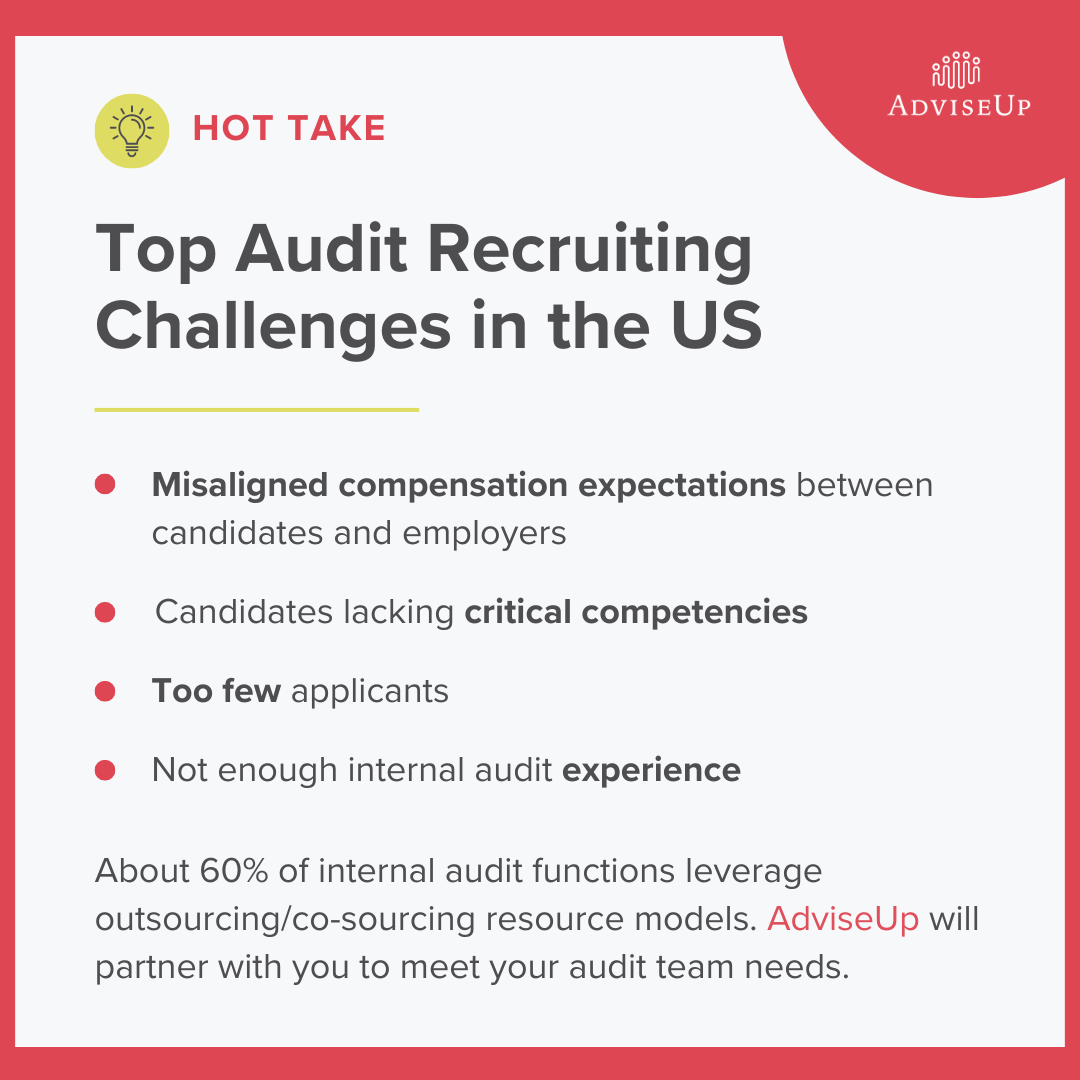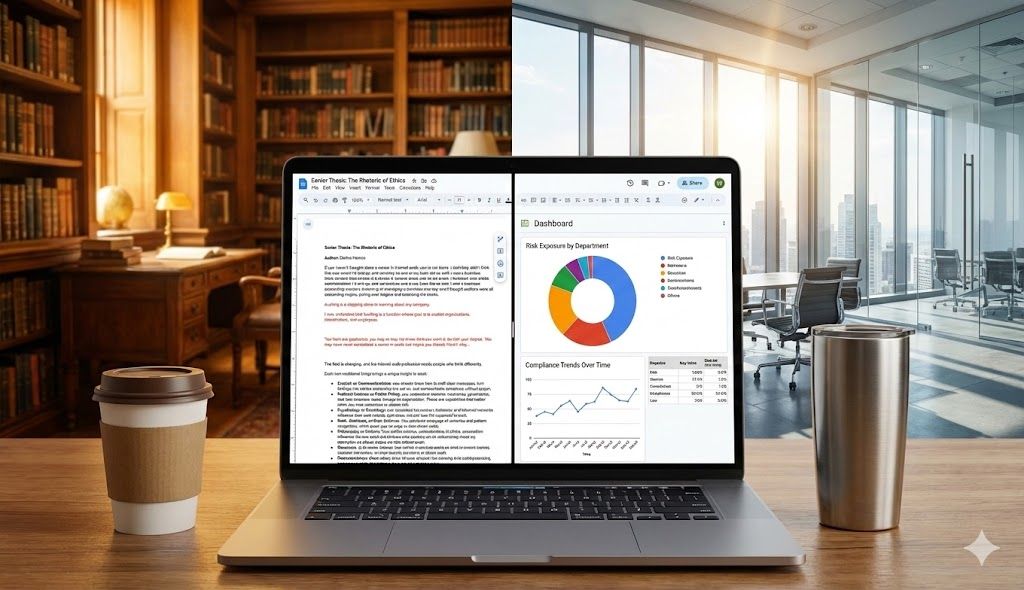Understanding Internal Audit Outsourcing vs. Co-sourcing
Internal Audit (IA) is an important function in any corporation and it is almost always a requirement. It provides independent assurance that risk management, governance, and internal control processes are operating effectively, with an end goal of adding business value.
On average, about 60% of internal audit functions are leveraging outsourcing/co-sourcing
(2024 North American Pulse of Internal Audit)
due to recruiting challenges.

In the past two decades, I have led several IA functions where I had to leverage outsourcing and co-sourcing models. It is through that experience that I can share the benefits and challenges of each model.
What’s the difference between Internal Audit outsourcing vs. co-sourcing?
Insourcing the IA function is usually the best option. However, that is expensive and hard to accomplish. Therefore, outsourcing solutions can be an appropriate tool for many use cases.
“Modern internal audit functions need a broad range of skills to provide an effective and comprehensive service”
- Alan Simpson
Outsourcing is often seen when companies start their journey of establishing an Internal Audit function. The companies outsource the administration and staffing to an external provider who reports results to management.
Co-sourcing is fairly common in most companies, blending existing internal resources and a third-party provider.
Pros and cons of outsourcing internal audits
Pros:
- Great starter kit for companies that do not have an existing IA function and do not know how to build one or for smaller companies.
- End to end management & execution of the IA function
- Access to expertise and tech skills that otherwise would not be available internally.
Considerations:
- Challenges finding the right vendor who can act as an extension of the company
- Often this is the most expensive option
- Less internal acceptance of external providers (they are not always viewed as part of the team)
- Limited knowledge transfer once auditors work is complete
Pros and cons of co-sourcing internal audits
Pros:
- Can provide adequate level of assurance to audit committee / board of directors even with limited resources
- Gives greater flexibility & scalability with staffing resources and needed support
- Augments current IA capabilities with specialist expertise + skills
- Can provide fresh perspectives and independent insights
Considerations:
- Challenges finding the right vendor who can act as an extension of the company
- External niche technical expertise can be costly
Both outsourcing and co-sourcing when implemented properly can help organizations maintain control of internal audit activities, deliver on their IA requirements and accomplish objectives.
If you need internal audit services, where should you look?
Large and Medium Firms
Large firms and Big 4 accounting companies are reputable for a reason. They are known to deliver credible reports, offer a wide range of services and resources and strong quality assurance processes.
On the other hand, they can be pricey and see high turnover so it can be more difficult to establish a long-term relationship. It’s also more likely you’ll be working with a manager or senior associate as opposed to a partner which can limit the depth or type of guidance you’ll receive.
Typically, their employees have no experience as internal auditors.
Small Firms
Smaller firms can meet customers IA needs without the hefty price tag. They tend to be more agile and can provide direct partnership with senior staff members who can offer valuable insight to your organization. You are more of a priority.
On the other hand, smaller firms may face resource constraints.
What to look for when selecting the right partner for your Internal Audit needs
There are a few important considerations to use when selecting the right firm for your use case:
- Firms that can offer experienced internal auditors, NOT external auditors
- The team has the technical expertise relevant to the scope of work (IT, Finance, and Operation processes) and offers relevant industry insights.
- Ability to communicate to internal and external stakeholders at every level
- Experience building or streamlining internal audit processes and providing measurable outcomes of increased efficiency
- Lastly, the price should be reasonable. There is no business need to pay the huge margins. New Paragraph
Call Advise Up, we can help.
We’re not lifelong outside consultants. We are career internal auditors with technical expertise and industry experience.
The team at AdviseUp provides hands-on experience outsourcing, co-sourcing, and in-sourcing internal audit experience to clients of all industry types and sizes.
Start preparing your business for the future today.
Resources
- What is Internal Audit? The Institute of Internal Auditors
- An Inconvenient Truth: Most Internal Audit Departments Are Small, Richard Chambers, Audit Beacon
- Internal Audit: A Global View, The Institute of Internal Auditors
- A Guide to Outsourcing the Internal Audit Function, Cherry Bekaert
- Why Outsourcing Internal Audit is a Big Risk, Gartner
- Internal audit: to outsource or not? Alan Simpson, ICAS




